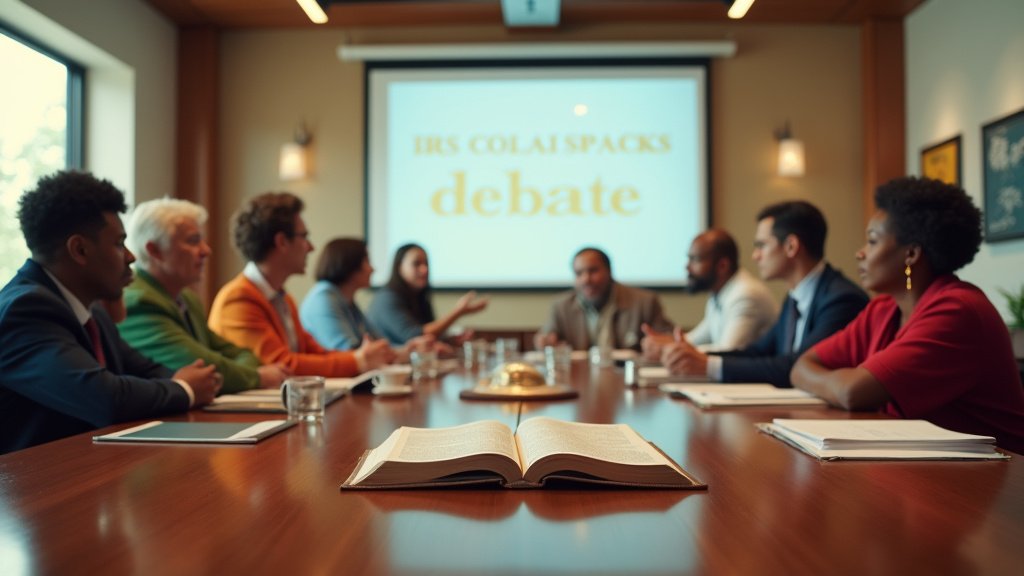IRS Ruling Sparks Debate Among Miami Faith Leaders
In a move that has sent ripples through the religious and political landscapes, the Internal Revenue Service (IRS) has recently announced a significant policy shift. The announcement concerns the ability of churches to endorse political candidates, a change that is now prompting fervent discussion and deliberation among faith leaders across the nation. This complex issue is particularly relevant in a diverse city like Miami, where the intersection of faith and politics has a long and nuanced history.
An article from the Miami Herald is shedding light on the local implications of this IRS decision. The report serves as a critical resource, unpacking the details of the announcement and its potential ramifications within the Miami community. The shift raises a multitude of questions, challenging churches to consider their role in the political arena and the possible impact on their congregations.
Navigating the New Landscape: Churches and Political Endorsements
For decades, churches have operated under the constraints of the Johnson Amendment, a provision in the U.S. tax code that prohibits tax-exempt organizations, including churches, from endorsing or opposing political candidates. This restriction was intended to ensure that charitable organizations remain neutral in political campaigns, thus protecting their tax-exempt status. The recent IRS announcement, however, introduces a degree of flexibility, potentially allowing churches greater latitude in expressing their political views.
This change is not without its complexities. Churches considering endorsing candidates must carefully weigh the potential consequences. They must consider how such endorsements might affect their congregation’s unity and whether they would be willing to risk their tax-exempt status. Moreover, there are legal and ethical considerations involved in navigating the updated regulations. The Miami Herald article highlights these considerations, providing a local perspective on the intricacies of this new landscape.
Reactions from Miami Faith Leaders: A Spectrum of Perspectives
The IRS announcement has triggered a range of reactions among Miami’s faith leaders. The Miami Herald report captures these diverse viewpoints, showcasing the varying perspectives on the role of churches in political advocacy. Some leaders are cautiously optimistic, viewing the policy shift as an opportunity to more openly address pressing social and political issues that impact their communities. Others express reservations, citing concerns about potential divisions within their congregations or the potential for politicization of religious institutions.
The leaders are grappling with the challenges the change presents. How will they decide which candidates to endorse? How can they ensure their endorsements reflect the values and beliefs of their congregations? What measures will they take to protect their tax-exempt status while still exercising their freedom of speech? These questions are at the forefront of their discussions. The article helps to present a real-world picture of the varied reactions to the announcement.
Potential Influence on the Intersection of Religion and Politics in Miami
Miami, known for its cultural diversity and strong religious presence, provides a unique context for the impact of the IRS decision. The city is home to a multitude of religious denominations and a wide array of political viewpoints. The potential for churches to become more involved in political endorsements could significantly influence the dynamics of local elections and political discourse.
The Miami Herald’s coverage is crucial because it analyzes this dynamic and explores the potential for increased engagement between faith communities and the political process. The report considers how this could affect voter turnout, campaign strategies, and the overall character of political campaigns in Miami. This is a very significant topic.
Examining the Nuances: Challenges and Considerations
The shift in IRS policy presents several challenges for churches. One primary challenge is navigating the legal complexities of endorsing candidates while remaining compliant with IRS regulations. Churches must be meticulously careful to avoid crossing the line into prohibited political activity. Furthermore, they will be dealing with the task of determining their approach to these endorsements.
Another challenge relates to managing potential divisions within congregations. Political endorsements can be highly divisive, and churches must be prepared to address disagreements among their members. Transparency, open dialogue, and a commitment to respectful communication will be crucial for navigating these challenges. The report helps to portray these hurdles.
The Road Ahead: A Call for Careful Consideration
As Miami faith leaders consider how to respond to the IRS announcement, careful consideration is essential. Churches should approach this new landscape with thoughtful planning, including establishing clear guidelines for political endorsements and creating channels for open communication within their congregations.
The Miami Herald’s reporting highlights this call for responsible action. It underscores the significance of making informed decisions that align with their missions and values. The shift offers an opportunity for churches to make their voices heard in the political arena, but they must do so with prudence and a deep respect for their congregations and the law.
Conclusion
The IRS decision has ignited a pivotal discussion about the intersection of religion and politics in Miami. The Miami Herald article provides a valuable resource for understanding the implications of the announcement, showcasing the diverse reactions of faith leaders and exploring the potential influence on the local community. As churches navigate this new landscape, careful consideration, thoughtful planning, and a commitment to open dialogue will be key to shaping the future of religious engagement in the political sphere. The community is beginning to understand how impactful this new policy is to the community.





